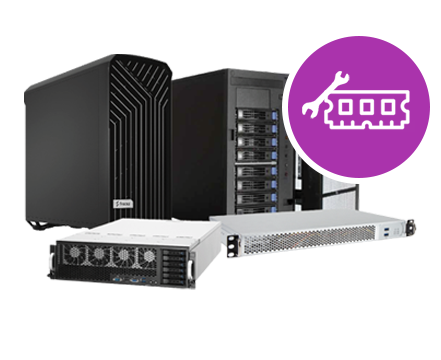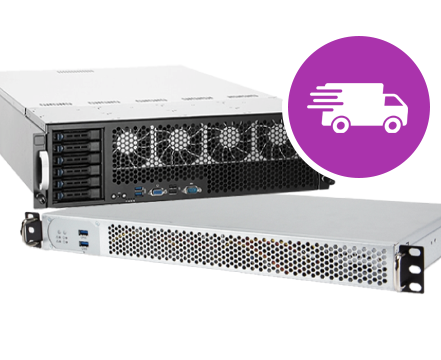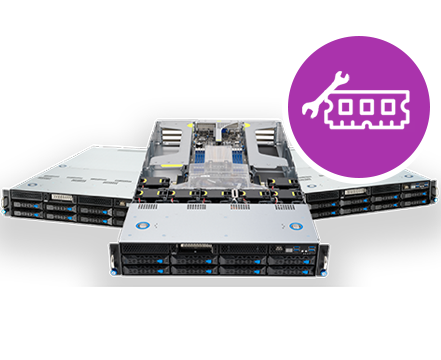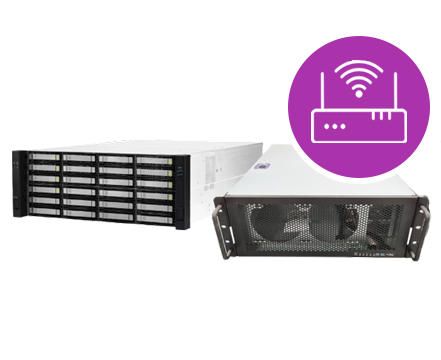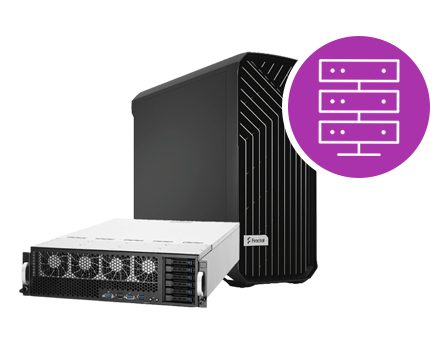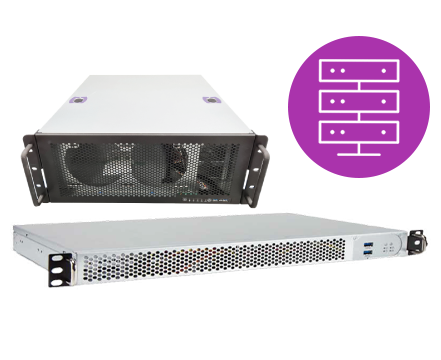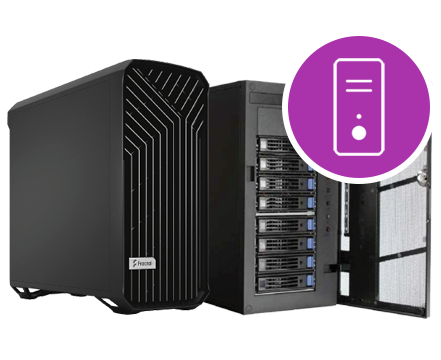In the ever-evolving IT ecosystem, businesses are constantly seeking efficient, scalable, and cost-effective solutions for their virtualisation needs. Two of the most compelling offerings in this space are Proxmox VE, coupled with CEPH for storage, and VMware's vSphere suite, including vSAN for storage and ESXi for hypervisor tasks. Both solutions offer robust features for managing virtualized server environments, but they cater to different needs and budgets. This article dives into the benefits of using Proxmox with CEPH compared to VMware vSAN and ESXi, helping companies make an informed decision for their bespoke server solutions.
Open-Source vs. Proprietary: A Fundamental Difference
At the core, Proxmox VE is an open-source platform, offering a combined virtualisation environment for both container-based and full virtualisation through KVM. CEPH, also open-source, complements Proxmox as a highly scalable and flexible storage solution. This open-source nature ensures that Proxmox with CEPH is not only cost-effective but also highly customizable. Companies can modify the code to suit their specific requirements, a significant advantage for businesses looking for tailored solutions.
In contrast, VMware's ESXi and vSAN solutions are proprietary. VMware is a titan in the industry, known for its reliability, performance, and support. vSphere's ESXi provides a mature and stable hypervisor layer, while vSAN offers a seamlessly integrated, high-performance storage layer. However, this comes at a higher cost, both for initial licensing and ongoing support.
Cost-Effectiveness: Budget-Friendly Solutions
For businesses conscious about expenses without wanting to compromise on capability, Proxmox with CEPH presents an attractive proposition. There are no licensing fees for the basic use of Proxmox or CEPH, making it accessible for companies of all sizes. This can result in significant savings, especially as a business scales. However, it's crucial to consider the potential need for professional support or additional features, which Proxmox offers through subscription plans.
VMware's solutions, given their proprietary nature, come with upfront licensing costs and annual subscription fees for support and updates. For organisations that require the guaranteed support, advanced features, and integration capabilities VMware offers, this investment can be justified by the enhanced efficiency and reliability of the environment.
Performance and Scalability: Meeting Business Demands
Both solutions excel in performance and scalability, but they approach these needs differently. Proxmox and CEPH offer a flexible environment that scales out effectively. CEPH's ability to provide highly available storage without a single point of failure is particularly beneficial for businesses looking to grow their infrastructure without compromising on data availability or performance.
VMware's vSAN integrates deeply with ESXi, offering a hyper-converged infrastructure solution that simplifies storage management and scales alongside your VMs. Its performance optimisation and storage policies tailored to specific workloads make it a strong contender for enterprises that require sophisticated and streamlined operations.
Ecosystem and Support: Ensuring Reliability
The choice between Proxmox with CEPH and VMware might also come down to the ecosystem and support services. VMware's extensive support network, comprehensive documentation, and large community provide peace of mind for businesses that prioritise reliability and quick resolution of issues.
Proxmox, while supported by a vibrant community and optional professional support, may require more in-house expertise to navigate and customise effectively. However, for IT teams with the necessary skills, Proxmox and CEPH can be highly rewarding, offering the flexibility to craft a solution that fits like a glove.
Conclusion
Deciding between Proxmox with CEPH and VMware's vSAN and ESXi hinges on a company's specific needs, budget, and IT capabilities. Proxmox and CEPH offer a compelling, cost-effective solution for businesses looking to maximise customisation and minimise costs. On the other hand, VMware's offerings provide a highly reliable, performance-optimised environment backed by extensive support, at a higher cost.
Ultimately, the choice reflects a strategic decision about what values—open-source flexibility and cost savings versus proprietary reliability and support—are most critical to your organisation's bespoke server solution. Each path offers a different set of benefits, but both lead towards a future-proofed IT environment tailored to your requirements.

